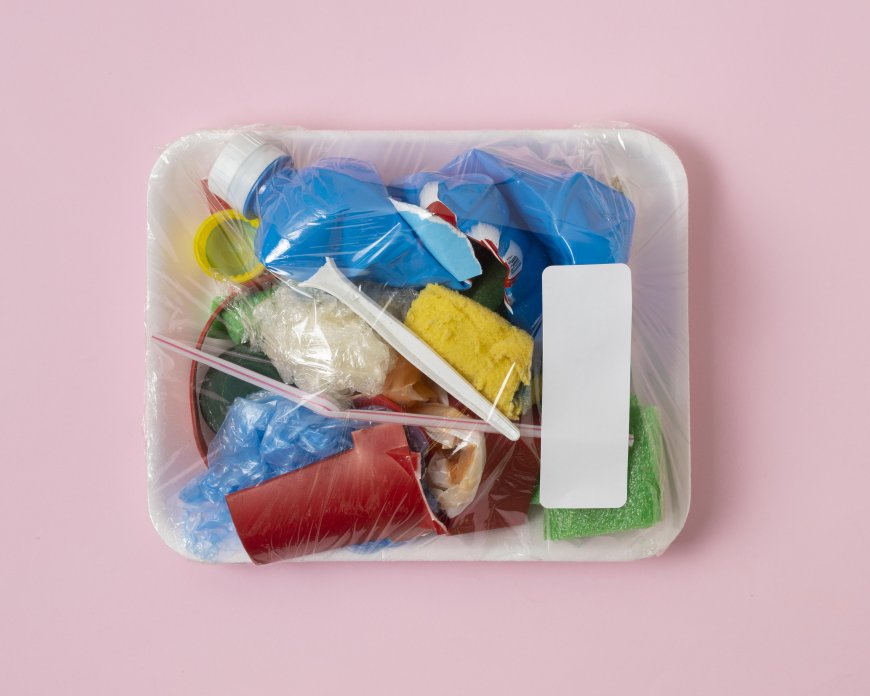Is Your Business Ready for EPR Plastic Regulations?
EPR plastic regulations are changing how businesses manage waste. Discover steps for registration and compliance in this detailed guide.

The growing global concern over plastic pollution has driven governments and regulatory bodies to impose stricter rules on how plastic waste is produced, managed, and disposed of. In India, this push has come in the form of the Extended Producer Responsibility (EPR) framework, which places accountability on producers, importers, and brand owners (PIBOs) to manage the end-of-life of plastic packaging. For businesses across various sectors, understanding and complying with EPR plastic regulations is no longer optionalits essential.
What is EPR and Why Its Here to Stay
Extended Producer Responsibility is not just a regulationits a shift in how we view environmental accountability. By placing the burden of waste management on producers rather than governments or end-users, EPR aims to reduce the amount of plastic that ends up in landfills, oceans, and incinerators.
In India and globally, EPR is being extended to include not just plastics but also electronics, batteries, textiles, and more. Businesses that align with this movement early will not only avoid regulatory issues but also gain an edge in a market that increasingly values sustainable practices.
Why EPR Plastic Compliance Matters
Extended Producer Responsibility, commonly referred to as EPR, is a policy approach that transfers the environmental responsibility of managing post-consumer products to the producers. In the case of plastics, this means businesses must ensure that the plastic they introduce into the market is collected, processed, and recycled or disposed of in an environmentally sound manner.
For companies operating in India, the Plastic Waste Management Rules, amended most recently in 2022, make EPR mandatory. If your business deals with plastic packagingwhether you're a manufacturer, brand owner, or importeryou must adhere to specific targets related to collection, recycling, and end-of-life disposal.
Failure to comply with these regulations can result in penalties, loss of business credibility, and even bans on product sales. More importantly, meeting EPR requirements reflects a company's commitment to environmental sustainability and corporate social responsibility, which consumers increasingly value.
EPR Registration: The First Step
The EPR compliance process begins with obtaining a registration from the Central Pollution Control Board (CPCB) or the respective State Pollution Control Boards. This registration is crucial as it serves as a formal acknowledgment of a business's responsibilities under the plastic waste rules.
Businesses must submit detailed documentation, including the types of plastic they use, their annual quantities, and their plans for waste collection and recycling. Once the application is submitted, the authorities verify the information and issue the EPR registration certificate, which must be renewed periodically.
Having a valid EPR registration is not just a legal requirementit also opens doors for partnerships with certified plastic waste processors, recyclers, and third-party agencies that help fulfill your compliance targets efficiently.
Understanding EPR Plastic Targets
Under the regulations, companies are given specific annual targets to meet. These typically include:
-
Recycling targets: A percentage of the plastic introduced in the market must be recycled annually.
-
Use of recycled content: Businesses may be required to include a certain amount of recycled plastic in their new packaging.
-
End-of-life disposal: For plastics that cannot be recycled, companies must ensure safe disposal through co-processing or incineration.
The targets vary depending on the type of plastic usedrigid, flexible, multilayer, etc.and the size of the business. Small and medium enterprises may have more relaxed requirements, but they are not exempt from compliance.
How to Ensure Your Business is EPR-Compliant
Being compliant with EPR plastic regulations involves more than just registration. Here are key steps businesses must take:
-
Audit Your Plastic Usage
Begin by identifying all plastic materials used in your packaging. Keep records of quantities, types, and suppliers. -
Partner with Authorized Recyclers and PROs
Producers Responsibility Organizations (PROs) are third-party service providers that help businesses fulfill their EPR obligations. Choose partners that are registered with CPCB or SPCBs and can provide necessary documentation. -
Track and Report Plastic Waste
Regular reporting is required to demonstrate compliance. Maintain transparent data on waste collected, processed, or recycled through your channels. -
Educate Your Teams
Ensure that your procurement, operations, and compliance teams understand the EPR requirements and are aligned with your sustainability goals. -
Stay Updated with Policy Changes
The regulatory landscape is dynamic. Keep track of updates from the Ministry of Environment, CPCB, and local pollution control boards to avoid non-compliance.
Challenges Businesses Face
While EPR plastic regulations are a positive move toward sustainable waste management, they do pose certain challenges, especially for small businesses. Common hurdles include:
-
Lack of awareness: Many businesses are unaware of the need for EPR registration or assume it doesn't apply to them.
-
Operational complexity: Managing logistics for plastic waste collection and documentation can be difficult without external support.
-
Finding reliable partners: Not all recyclers or PROs are equipped to handle compliance efficiently, leading to potential delays and errors in reporting.
These challenges can be overcome with proper planning, resource allocation, and by consulting sustainability experts or compliance consultants who specialize in EPR implementation.
Conclusion
If your business deals with plastic packaging, now is the time to take EPR plastic regulations seriously. Start by getting your EPR registration, audit your plastic usage, and put systems in place to meet your waste management targets. The shift to a circular economy is well underway, and Extended Producer Responsibility is a major step in that direction.
Adapting to these regulations might seem complex, but its a worthwhile investment for your brand, your consumers, and the planet. The real question isnt whether your business should complyits whether you're ready to lead the way in sustainable change.

































